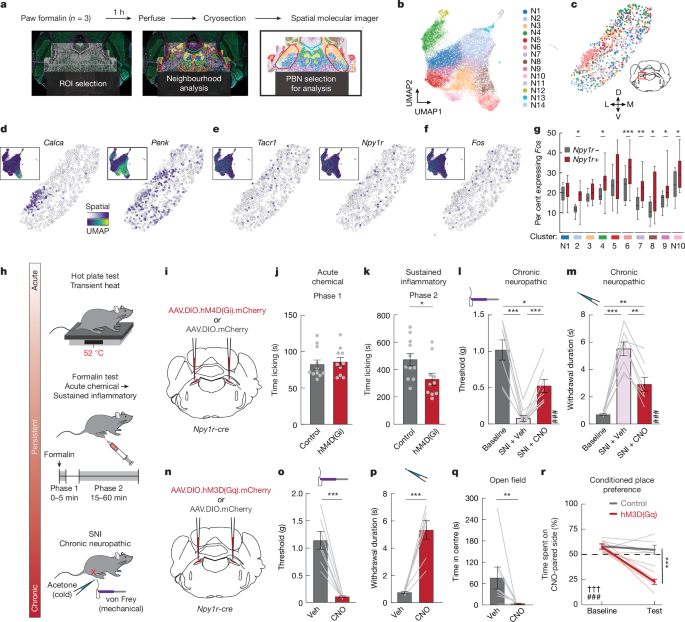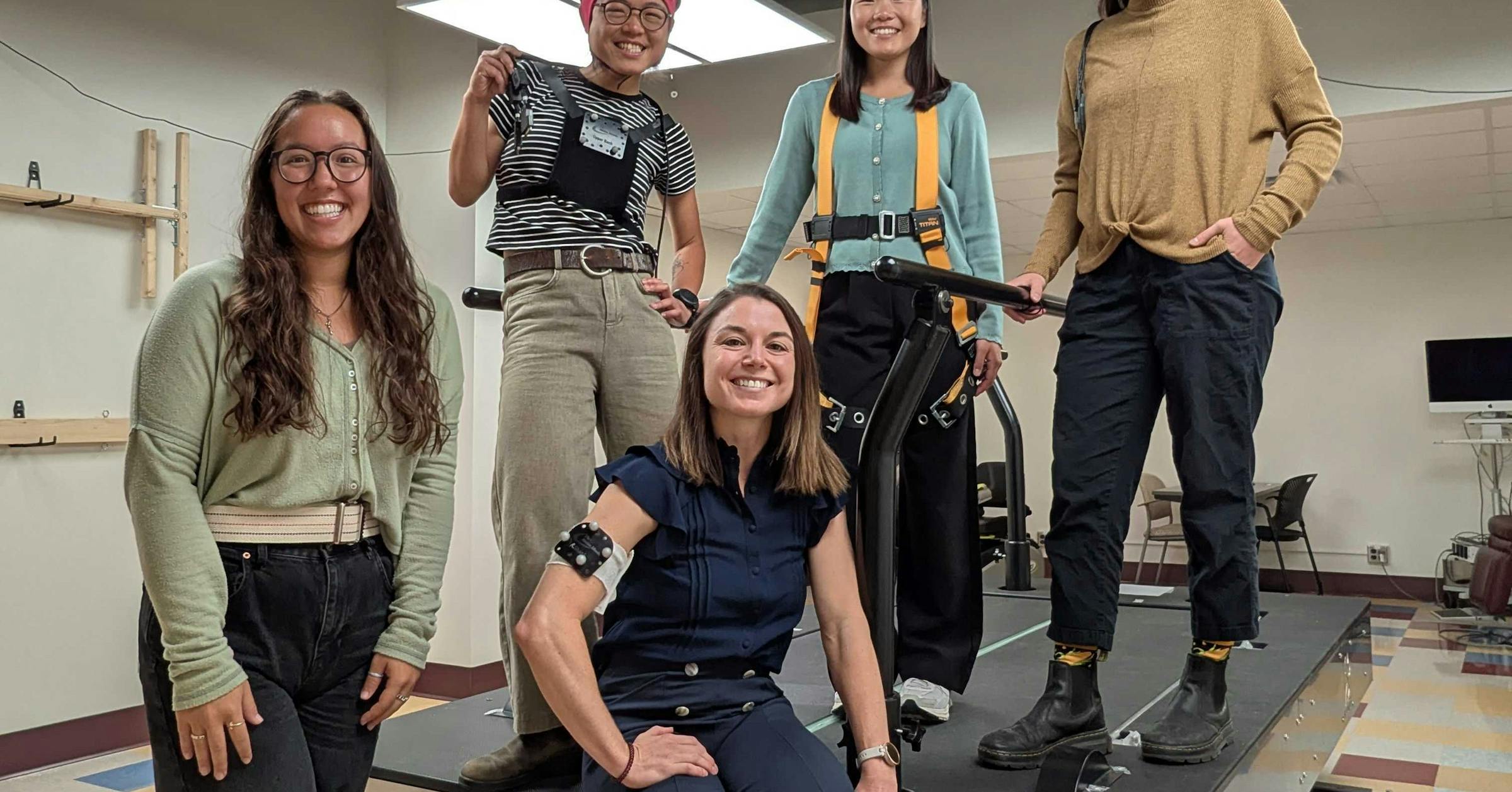Justin Clapp’s introspection about his own impact on mountain lions is partly what sparked a scientific examination of how the big cats respond to being bumped off carcasses mid-feast. The Wyoming Game and Fish Department’s large carnivore biologist, along with colleagues and fellow researchers, repeatedly displaced feeding cats — 26 individual research animals — while trying to answer questions about …
Read More »Health
Common opioid is not that effective for easing chronic pain, study finds – WCVB
Common opioid is not that effective for easing chronic pain, study finds WCVBView Full Coverage on Google News Source link
Read More »A parabrachial hub for need-state control of enduring pain
Experimental model and subject details Mice were group-housed on a 12 h light:12 h dark cycle with ad libitum access to food (Purina Rodent Chow, 5001) and water unless otherwise noted. Temperature (21.5–22.3 °C) and humidity (50 ± 15%) were controlled. Group-housed adult male and female mice (at least eight weeks old) were used for experiments. Npy1r-cre (Jackson Laboratory 030544, B6.Cg-Npy1rtm1.1(cre/GFP)Rpa/J (ref. 46), Npy-Flp (Jackson …
Read More »University of Minnesota studying secrets of SuperAgers
Instead of studying why some people age faster, a University of Minnesota researcher has received $2.2 million to figure out why others stay youthful longer. Brain activity appears different in so-called “SuperAgers,” people 75 and older with no cognitive declines who walk and run as easily as people in their 40s, said Jacqueline Palmer, the U physical therapist leading the …
Read More »Client Challenge
Client Challenge JavaScript is disabled in your browser. Please enable JavaScript to proceed. A required part of this site couldn’t load. This may be due to a browser extension, network issues, or browser settings. Please check your connection, disable any ad blockers, or try using a different browser. Source link
Read More »This addiction is more dangerous than alcohol or tobacco, new study warns of a silent trap
A new study published in the journal Addiction has uncovered a sobering reality: older Americans are now more likely to be addicted to ultra-processed foods (UPFs) than to alcohol or tobacco. These foods—loaded with refined carbohydrates, added fats, and artificial flavorings—are designed to light up the brain’s reward system while offering little nutritional value. The research, conducted by the University …
Read More »Golden Retriever Jumps From Moving Car And Ends Up Stranded On A Tiny Island
Meet Matilda: a spunky golden retriever whose fearlessness recently got her into a bit of trouble. Katonah Fire Department Last month, Matilda was in the car with her mom, driving on an overpass above New York’s Muscoot Reservoir, when she popped her head out the window and decided she wanted to go outside. In a flash, Matilda jumped out of …
Read More »This Type of Hobby Can Keep Your Brain Young, New Science Says
All products featured on Self are independently selected by Self editors. However, when you buy something through our retail links, Condé Nast may earn an affiliate commission. Collage: Self; Source Image: Jeffrey Coolidge/Getty Images It’s easy to dismiss just-because hobbies like painting or poetry as silly little things you do to busy your hands or find a brief escape from …
Read More »Diet Soda May Raise Your Liver Disease Risk
Drinking more than one soda daily may increase liver disease risk by 50% to 60%. Replacing soda with water could reduce liver disease risk by up to 15%. Both sugary and diet sodas were linked to higher liver fat and liver-related deaths. Many people reach for a diet soda as a healthier choice, especially when compared to a regular, sugary …
Read More »Women Have Twice as Many Depression Genes as Men, Says Largest-of-Its-Kind Study : ScienceAlert
Women are genetically at higher risk of clinical depression than men, Australian researchers found in a study published Wednesday that could change how the disorder is treated. Billed as one of the largest-ever studies of its kind, scientists pored through the DNA of almost 200,000 people with depression to pinpoint shared genetic “flags”. Women had almost twice as many of …
Read More »





:max_bytes(150000):strip_icc()/Sodas-Even-Diet-Ones-May-Raise-Your-Liver-Disease-Risk-New-Study-Suggests-41e405603ca14c8e9f73a8dc655114ce.jpg)
